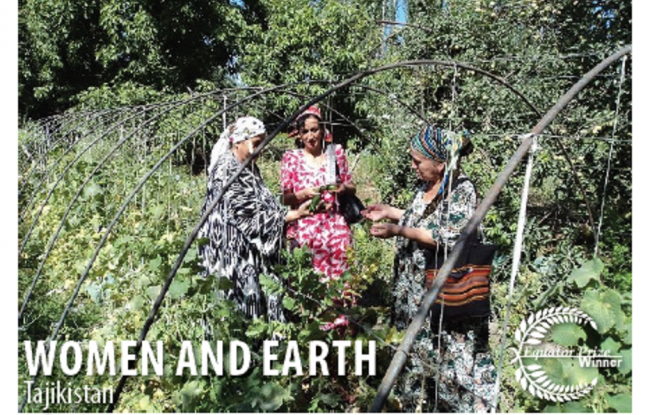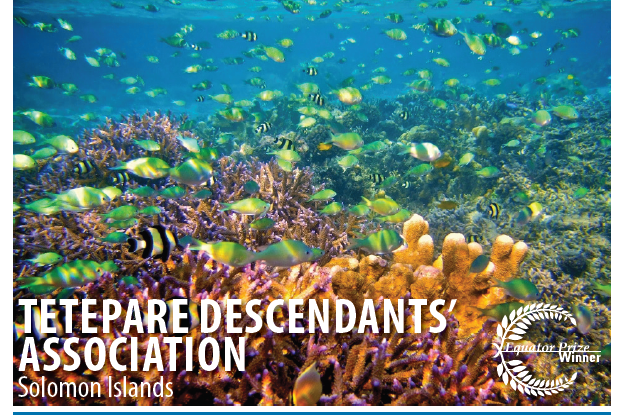Location
What we do
The Equator Initiative brings together the United Nations, governments, civil society, businesses and grassroots organizations to recognize and advance local sustainable development solutions for people, nature and resilient communities.
We seek to
-
Recognize the success of local and indigenous initiatives
-
Create opportunities and platforms to share knowledge and good practice
-
Inform policy to foster an enabling environment for local and indigenous community action
-
Develop the capacity of local and indigenous initiatives to scale-up their impact.
How we do it
The Equator Initiative accomplishes its goals through three action areas:
- The Equator Prize is awarded biennially to recognize and advance local sustainable development solutions for people, nature and resilient communities. As local and indigenous groups across the world chart a path towards sustainable development, the Equator Prize shines a spotlight on their efforts by honoring them on an international stage.
- Equator Dialogues are an ongoing series of community-driven meetings and exchanges, held in conjunction with related international forums. Equator Dialogues provide opportunities for people to share experiences, develop capacities and influence policy.
- Equator Knowledge is a research, documentation and learning program focused on local best practice in sustainable development. The Equator Initiative works with partners to identify, document, and analyze the success factors of local best practice, and to catalyze ongoing peer-to-peer learning, knowledge exchange and replication of best practice.
Members:
Resources
Displaying 11 - 15 of 148Equator Initiative Case Studies. Solomon Islands. Tetepare Descendants’ Association (TDA) (French)
Local and indigenous communities across the world are advancing innovative sustainable development solutions that work for people and for nature. Few publications or case studies tell the full story of how such initiatives evolve, the breadth of their impacts, or how they change over time. Fewer still have undertaken to tell these stories with community practitioners themselves guiding the narrative. The Equator Initiative aims to fill that gap.
Equator Initiative Case Studies. Madagascar. Association Anja Miray (Anja Miray Association) (French)
Local and indigenous communities across the world are advancing innovative sustainable development solutions that work for people and for nature. Few publications or case studies tell the full story of how such initiatives evolve, the breadth of their impacts, or how they change over time. Fewer still have undertaken to tell these stories with community practitioners themselves guiding the narrative. The Equator Initiative aims to fill that gap.
Equator Initiative Case Studies. Tajikistan. Zan va Zamin (Women and Earth) (English)
Local and indigenous communities across the world are advancing innovative sustainable development solutions that work for people and for nature. Few publications or case studies tell the full story of how such initiatives evolve, the breadth of their impacts, or how they change over time. Fewer still have undertaken to tell these stories with community practitioners themselves guiding the narrative. The Equator Initiative aims to fill that gap.
Equator Initiative Case Studies. Zimbabwe. Chibememe Earth Healing Association (CHIEHA) (English)
Local and indigenous communities across the world are advancing innovative sustainable development solutions that work for people and for nature. Few publications or case studies tell the full story of how such initiatives evolve, the breadth of their impacts, or how they change over time. Fewer still have undertaken to tell these stories with community practitioners themselves guiding the narrative. The Equator Initiative aims to fill that gap.
Equator Initiative Case Studies. Solomon Islands. Tetepare Descendants’ Association (TDA) (English)
Local and indigenous communities across the world are advancing innovative sustainable development solutions that work for people and for nature. Few publications or case studies tell the full story of how such initiatives evolve, the breadth of their impacts, or how they change over time. Fewer still have undertaken to tell these stories with community practitioners themselves guiding the narrative. The Equator Initiative aims to fill that gap.





